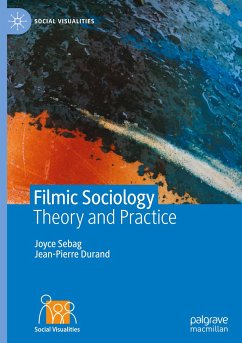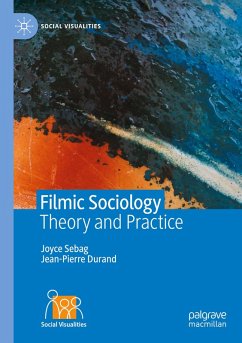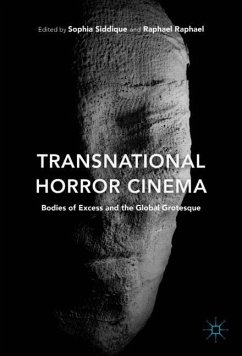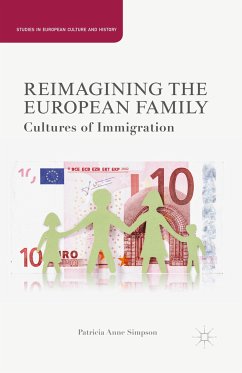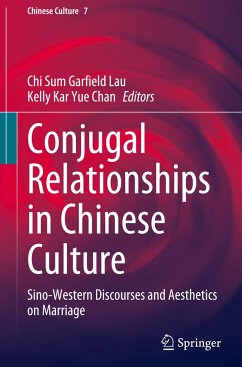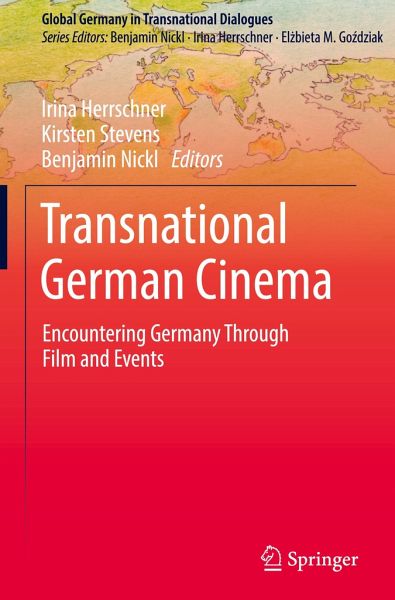
Transnational German Cinema
Encountering Germany Through Film and Events
Herausgegeben: Herrschner, Irina; Stevens, Kirsten; Nickl, Benjamin

PAYBACK Punkte
53 °P sammeln!
This volume explores the notion of German cinema as both a national and increasingly transnational entity. It brings together chapters that analyse the international circuits of development and distribution that shape the emerging films as part of a contemporary "German cinema", the events and spectacles that help frame and re-frame national cinemas and their discoverability, and the well-known filmmakers who sit at the vanguard of the contemporary canon. Thereby, it explores what we understand as German cinema today and the many points where this idea of national cinema can be interrogated, e...
This volume explores the notion of German cinema as both a national and increasingly transnational entity. It brings together chapters that analyse the international circuits of development and distribution that shape the emerging films as part of a contemporary "German cinema", the events and spectacles that help frame and re-frame national cinemas and their discoverability, and the well-known filmmakers who sit at the vanguard of the contemporary canon. Thereby, it explores what we understand as German cinema today and the many points where this idea of national cinema can be interrogated, expanded and opened up to new readings.
At the heart of this interrogation is a keen awareness of the technological, social, economic and cultural changes that have an impact on global cinemas more broadly: new distribution channels such as streaming platforms and online film festivals, and audience engagement that transcends national borders as well as the cinema space. International film production and financing further heightens the transnational aspects of cinema, a quality that is often neglected in marketing and branding of the filmic product. With particular focus on film festivals, this volume explores the tensions between the national and transnational in film, but also in the events that sit at the heart of global cinema culture. It includes contributions from filmmakers, cultural managers and other professionals in the field of film and cinema, as well as scholarly contributions from academics researching popular culture, film, and events in relation to Germany.
At the heart of this interrogation is a keen awareness of the technological, social, economic and cultural changes that have an impact on global cinemas more broadly: new distribution channels such as streaming platforms and online film festivals, and audience engagement that transcends national borders as well as the cinema space. International film production and financing further heightens the transnational aspects of cinema, a quality that is often neglected in marketing and branding of the filmic product. With particular focus on film festivals, this volume explores the tensions between the national and transnational in film, but also in the events that sit at the heart of global cinema culture. It includes contributions from filmmakers, cultural managers and other professionals in the field of film and cinema, as well as scholarly contributions from academics researching popular culture, film, and events in relation to Germany.






